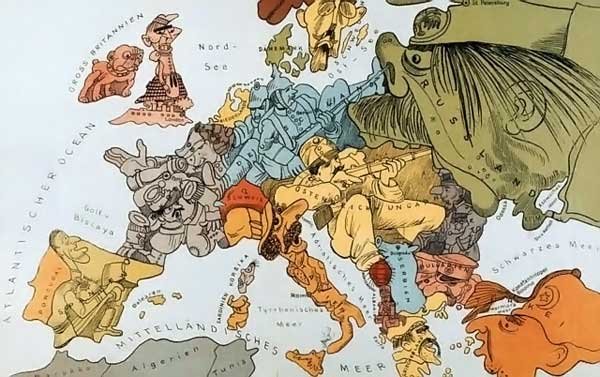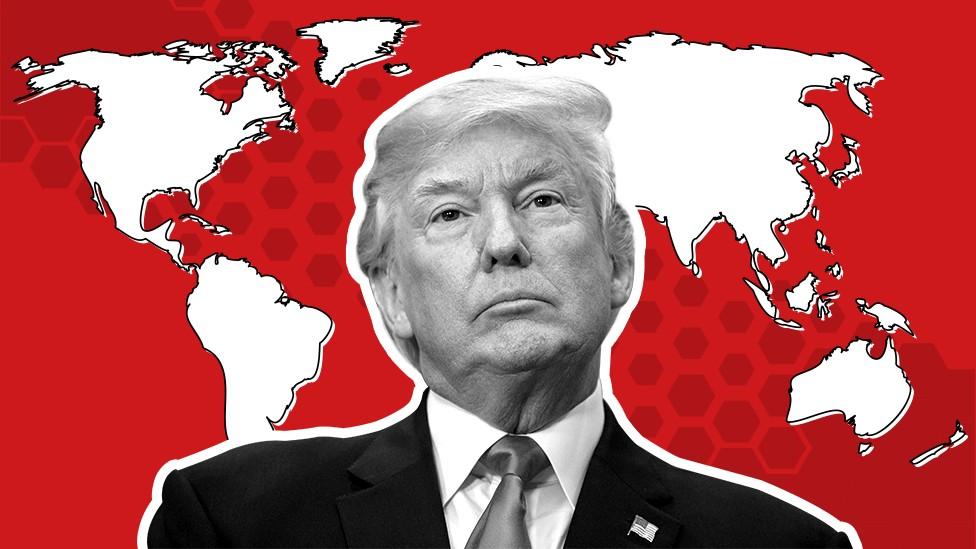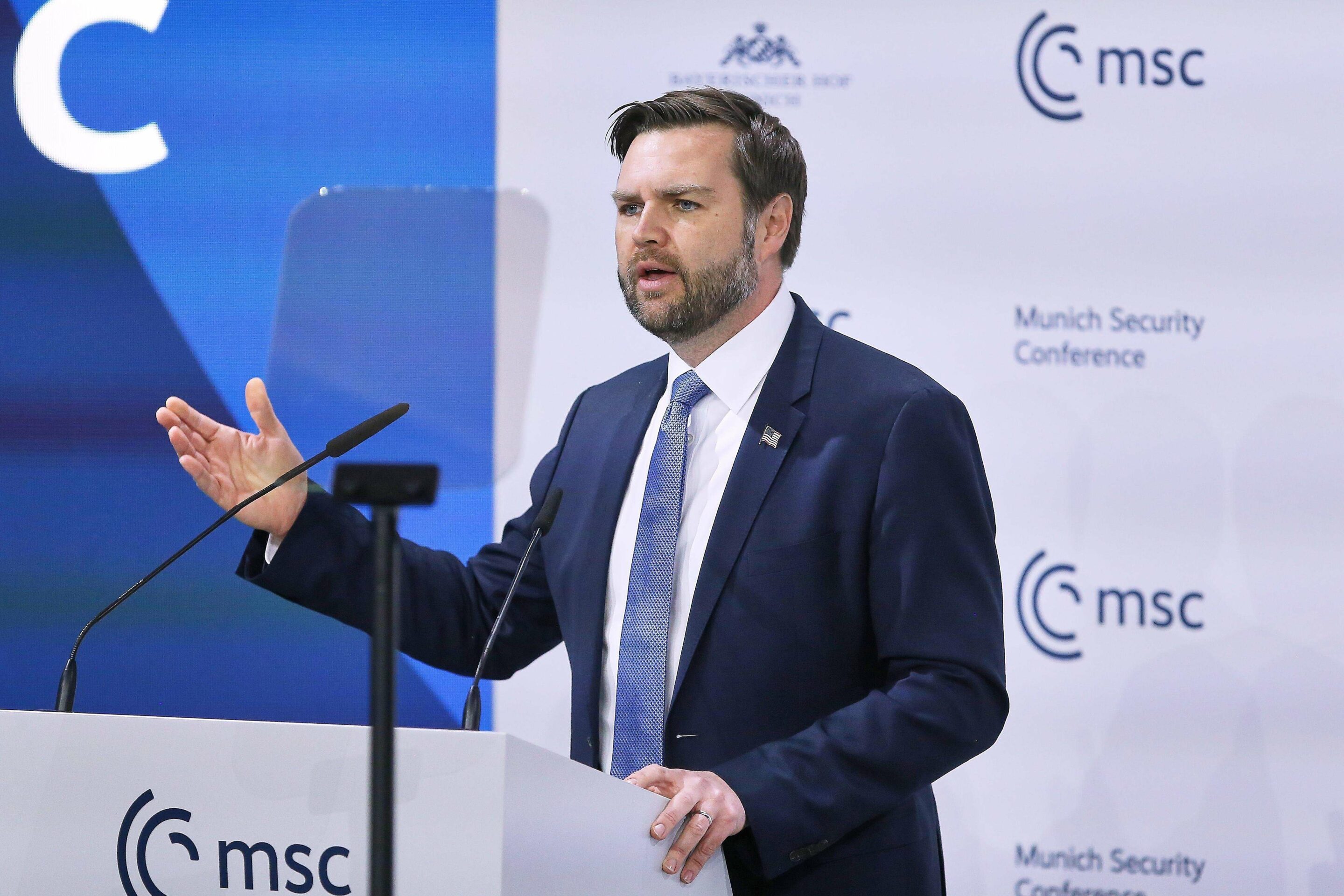Free Speech Over Military Threats
One of the central themes of Vance’s speech was his assertion that the greatest danger facing Europe is not a foreign military power but internal restrictions on free speech and political dissent. He argued that many European governments are actively curbing free expression through stringent regulations, media control, and suppression of opposing views. According to Vance, such actions weaken democratic institutions from within, making Europe more vulnerable to external threats.
This framing of security as an ideological and governance issue rather than a purely military concern is noteworthy. While concerns about censorship and political suppression are not new, Vance's emphasis on these issues over more conventional security threats like Russian aggression or China’s growing influence signals a shift in the U.S. approach.
Criticism of Political “Firewalls”
A particularly controversial aspect of Vance’s speech was his critique of what he called European political “firewalls.” This term refers to measures taken by mainstream political parties and institutions to isolate extremist groups, particularly far-right movements. Vance suggested that these firewalls are undemocratic and counterproductive, as they prevent legitimate political discourse and disenfranchise significant portions of the population.
His remarks coincided with reports that he had met with a leader of Germany’s far-right Alternative for Germany (AfD) party, which has been widely criticized for its nationalist and xenophobic rhetoric. This meeting, combined with his speech, raised concerns that Vance is sympathetic to far-right movements or at least willing to engage with them in ways that previous U.S. leaders have avoided. European leaders, particularly in Germany and France, have long worked to contain the influence of such parties, seeing them as threats to democratic stability. Vance’s critique of these efforts could strain relations between the U.S. and key European allies.
A Departure from Traditional U.S. Stances
Historically, U.S. leaders at the Munich Security Conference have used their platform to reaffirm commitment to NATO, denounce Russian aggression, and underscore support for Ukraine, especially since Russia’s invasion in 2022. While Vance did not ignore these issues entirely, his speech notably lacked the strong anti-Russia rhetoric that has characterized previous addresses by U.S. officials. Instead, his focus on internal European governance issues suggests a recalibration of priorities under the current administration.
This shift aligns with broader trends in American politics, where there is growing skepticism about military interventionism and an increasing focus on ideological battles within the West itself. By highlighting free speech concerns and criticizing European political structures, Vance positioned the U.S. not just as a military ally but as a watchdog for democratic principles, albeit in a way that some European leaders may find intrusive or misdirected.
Impact on U.S.-Europe Relations
Vance’s speech is likely to have mixed repercussions on transatlantic relations. On one hand, his call for greater attention to democratic backsliding could resonate with certain European politicians and civil society groups who share concerns about government overreach. On the other hand, his criticism of European political strategies, particularly in dealing with extremist movements, could be seen as unwarranted interference in domestic affairs.
For European leaders, Vance’s speech may come across as an attempt to reshape the transatlantic alliance’s priorities in a way that diminishes the immediate threats posed by Russia and China. Countries like Germany and Poland, which are at the forefront of the NATO alliance’s defense against Russian aggression, may see his remarks as a distraction from the urgent need for military preparedness and unity.
Additionally, his comments could embolden right-wing and populist movements across Europe, which may interpret his speech as an endorsement of their criticism of mainstream political institutions. This could further complicate U.S.-Europe relations, as many European governments have been working to contain these movements rather than legitimize them.
Reactions from European and Global Leaders
Reactions to Vance’s speech have been polarized. Some conservative figures in Europe have welcomed his remarks, arguing that they highlight real issues of government overreach and suppression of dissenting voices. They see his speech as validation of concerns that the European Union and individual governments are becoming increasingly authoritarian in their attempts to regulate speech and political participation.
However, many European leaders, particularly those in centrist and left-leaning governments, have pushed back against his claims. German and French officials have stressed that their efforts to combat misinformation and extremist ideologies are essential for preserving democratic stability. They argue that Vance’s framing of these efforts as censorship is misleading and fails to recognize the nuances of European political realities.
NATO officials have also expressed concern that Vance’s speech shifts focus away from pressing security threats. At a time when Russia’s war in Ukraine remains a major geopolitical crisis, they worry that internal ideological debates could weaken the alliance’s cohesion and divert attention from critical defense strategies.
Broader Implications for U.S. Foreign Policy
Vance’s speech may signal a broader shift in U.S. foreign policy under the current administration. His prioritization of ideological and governance issues over traditional security concerns suggests that the U.S. may seek to redefine its role in the transatlantic partnership. Rather than acting primarily as a military ally, the U.S. could position itself as a champion of what it sees as fundamental democratic values, even if that means challenging European governments on their domestic policies.
This approach could have significant consequences. If the U.S. moves away from prioritizing military support for Ukraine and NATO’s eastern flank, it could create uncertainty among European allies about America’s long-term commitment to their security. Conversely, if Vance’s focus on free speech and democratic governance gains traction, it could push European governments to reassess their policies on media control, political participation, and civil liberties.
Conclusion
JD Vance’s speech at the Munich Security Conference represents a striking departure from traditional U.S. positions on transatlantic security. By prioritizing concerns about censorship and political suppression over military threats, he has reshaped the conversation on what constitutes the greatest danger to European stability. While his remarks have sparked important discussions on free speech and democracy, they have also raised concerns about the future of U.S.-Europe relations and the cohesion of the NATO alliance.
As the geopolitical landscape continues to evolve, it remains to be seen whether Vance’s speech signals a lasting shift in U.S. foreign policy or if it is simply an isolated expression of his personal views. Regardless, his remarks have undeniably sparked a debate that will influence transatlantic discourse in the years to come.







Comments